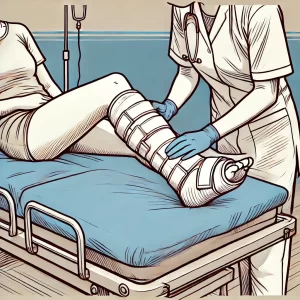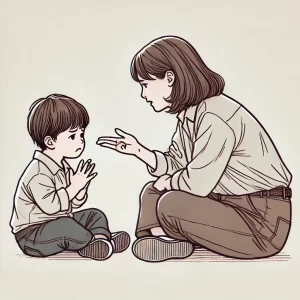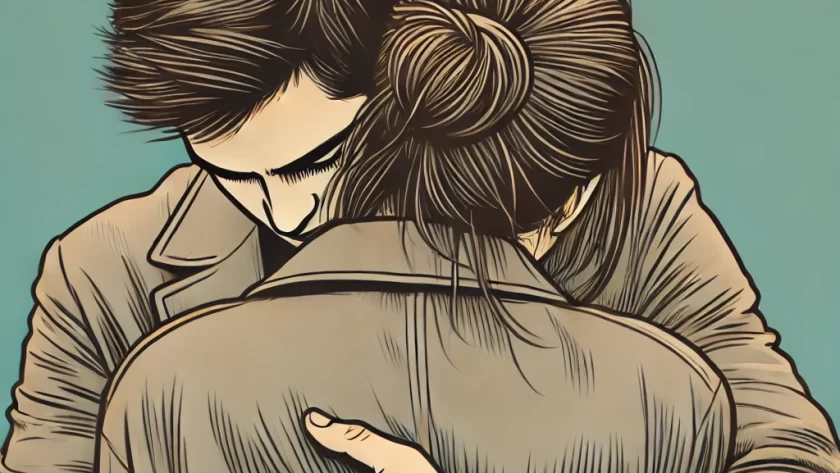ギブス [Gibusu]
椎名林檎 [SHIINA Ringo]
Words & Music : 椎名林檎 [SHIINA Ringo]
“Gips” was released as SHEENA Ringo‘s fifth single. It is said that Sheena wrote it when she was 17, before her debut.
“Gips” is the German word for “Orthopedic cast.” Since Germany was once a leading country in medicine, many Japanese medical terms are derived from German. The word is often pronounced as “ギブス / Gibusu” in Japanese, which is also the Japanese title of this song.

あなたはすぐに写真を撮りたがる
anata wa sugu ni shashin o toritagaru
あたしは何時も其れを厭がるの
atashi wa itsumo sore o iyagaru no
だって写真になっちゃえば
datte shashin ni nacchaeba
あたしが古くなるじゃない
atashi ga furuku naru janai
- あなた [anata] : you
- すぐ [sugu] : immediately, easily
- 写真(しゃしん)[shashin] : photo
- 写真を撮る(しゃしんをとる)[shashin o toru] : take a photo
- あたし [atashi] : I
- いつも [itsumo] : always
- それ [sore] : it
- 嫌がる(いやがる)[iyagaru] : dislike
- だって [datte] : because
- なる [naru] : become
- 古い(ふるい)[furui] : old
(translation) “You always want to take a photo.
I always hate that
because if it becomes a photo,
I will become old.”
“あたし / atashi” is an informal way of saying “わたし / watashi,” which Sheena prefers.
“だって / datte” is sometimes used in a slightly childish manner. For example:
Mother: “I told you not to touch it because it’s dangerous!”
Child: “Datte! datte!”
This brings to mind a situation where a child is making excuses or throwing a tantrum.

The “じゃない / janai” that appears here means something like “Isn’t it?” or “Don’t I?” For reference, see “Kazari ja Nai no yo Namida wa.”
あなたはすぐに絶対などと云う
anata wa sugu ni zettai nado to iu
あたしは何時も其れを厭がるの
atashi wa itsumo sore o iyagaru no
だって冷めてしまっちゃえば
datte samete shimatchaeba
其れすら嘘になるじゃない
sore sura uso ni naru janai
- 絶対(ぜったい)[zettai] : absolutely
- 言う(いう)[iu] : say
- 冷める(さめる)[sameru] : cool down
- 嘘(うそ)[uso] : lie
(translation) “You always say things like ‘absolutely.’
I always hate that
because if it cools down,
even that will become a lie.”
don’t U θink?
don’t you think
(translation) “Don’t you think?”
The lyrics sheet of American rock star Prince often looked like this. I wonder if there was some influence from him.
In Japanese lyrics, kanji can be used, so there’s a lot of room for playful expression like this. As I mentioned in yesterday’s article, Sheena uses writing styles from about 100 years ago to maintain her worldview. That’s why the kanji used in the lyrics and word sections are different in this article. Please learn the kanji used in the word section.
I’m glad I could find an example that helps everyone understand the same feeling! (But if this kind of playfulness is overdone, it can get annoying, right?)
I wanna be with you 此処に居て ずっとずっとずっと
I wanna be with you koko ni ite zutto zutto zutto
明日のことは判らない だからぎゅっとしていてね
ashita no koto wa wakaranai dakara gyutto shite ite ne
ぎゅっとしていてねダーリン
gyutto shite ite ne dārin
- ここ [koko] : here
- ずっと [zutto] : forever
- 明日(あした)[ashita] : tomorrow
- 分からない(わからない)[wakaranai] : not know
- だから [ dakara] : so
- ぎゅっと [gyu] : hug tightly
- する [suru] : do
- ダーリン [dārin] : darling
(translation) “I wanna be with you, stay here forever and ever.
I don’t know about tomorrow, so hug me tight.
Hug me tight, darling.”
“ぎゅっ / gyu” is an onomatopoeia that expresses the act of hugging or squeezing something tightly. Can you all understand that? It’s more intuitive to be told “Please do me ‘gyu’!” than “Please hug me,” isn’t it?. And yes, it sounds a bit childish. A child might ask their mom for a hug like this. Although an adult woman might use it, it definitely has a sweet and dependent nuance.
The contrast between the atmosphere of the music and the lyrics is quite interesting, isn’t it?

あなたはすぐにいじけて見せたがる
anata wa sugu ni ijikete misetagaru
あたしは何時も其れを喜ぶの
atashi wa itsumo sore o yorokobu no
だってカートみたいだから
datte kāto mitai dakara
あたしがコートニーじゃない
atashi ga kōtonī janai
- いじける [ijikeru] : sulk
- 喜ぶ(よろこぶ)[yorokobu] : be pleased
- カート [kāto] : Kurt
- コートニー [kōtonī] : Courtney
- みたい [mitai] : like
(translation) “You always pretend to sulk.
I always enjoy that
because you’re like Kurt,
so I’m Courtney.”
“Kurt” refers to Kurt Cobain, the American rock star from Nirvana, and “Courtney” refers to his wife, Courtney Love. However, it seems Sheena wasn’t particularly fond of Nirvana; she wrote this due to the influence of her boyfriend at the time.
don’t U θink?
don’t you think
I wanna be with you 傍に来て もっともっともっと
I wanna be with you soba ni kite motto motto motto
昨日のことは忘れちゃおう そしてぎゅっとしていてね
kinō no koto wa wasurechaō soshite gyutto shite ite ne
ぎゅっとしていてねダーリン
gyutto shite ite ne dārin
- そば [soba] : beside
- 来る(くる)[kuru] : come
- もっと [motto] : more
- 昨日(きのう)[kinō] : yesterday
- 忘れる(わすれる)[wasureru] : forget
(translation) “Don’t you think?
I wanna be with you, come closer, more, more, more.
Let’s forget about yesterday and hug tight.
Hug me tight, darling.”
また四月が来たよ同じ日のことを思い出して
mata shigatsu ga kita yo onaji hi no koto o omoidasite
- また [mata] : again
- 四月(しがつ)[shigatsu] : April
- 同じ [onaji] : same
- 日(ひ)[hi] : day
- 思い出す(おもいだす)[omoidasu] : recall
(translation) “April has come again, reminding me of the same day.”
It’s possible that this refers to the fact that Kurt Cobain died in April.
don’t U θink?
don’t you think
I wanna be with you 此処に居て ずっとずっとずっと
I wanna be with you koko ni ite zutto zutto zutto
明日のことは判らない だからぎゅっとしていてね
ashita no koto wa wakaranai dakara gyutto shite ite ne
I wanna be with you 傍に来て もっともっともっと
I wanna be with you soba ni kite motto motto motto
昨日のことは忘れちゃおう そしてぎゅっとしていてね
kinō no koto wa wasurechaō soshite gyutto shite ite ne
ぎゅっとしていてねダーリン
gyutto shite ite ne dārin
“ずっと / zutto” and “ぎゅっ / gyu” are key phrases in these lyrics. The title “Gips” probably refers to the idea of being held tightly and continuously, like an orthopedic cast.
It seems Sheena didn’t have much personal affection for Kurt Cobain, so you can disregard that interpretation.
Producer Seiji Kameda (who later played bass in the band Tokyo Jihen centered around Sheena) is said to love this song so much that he requested it be played at his funeral.
Thanks for reading! Feel free to comment if you have any feedback or questions.
Follow me on X.



